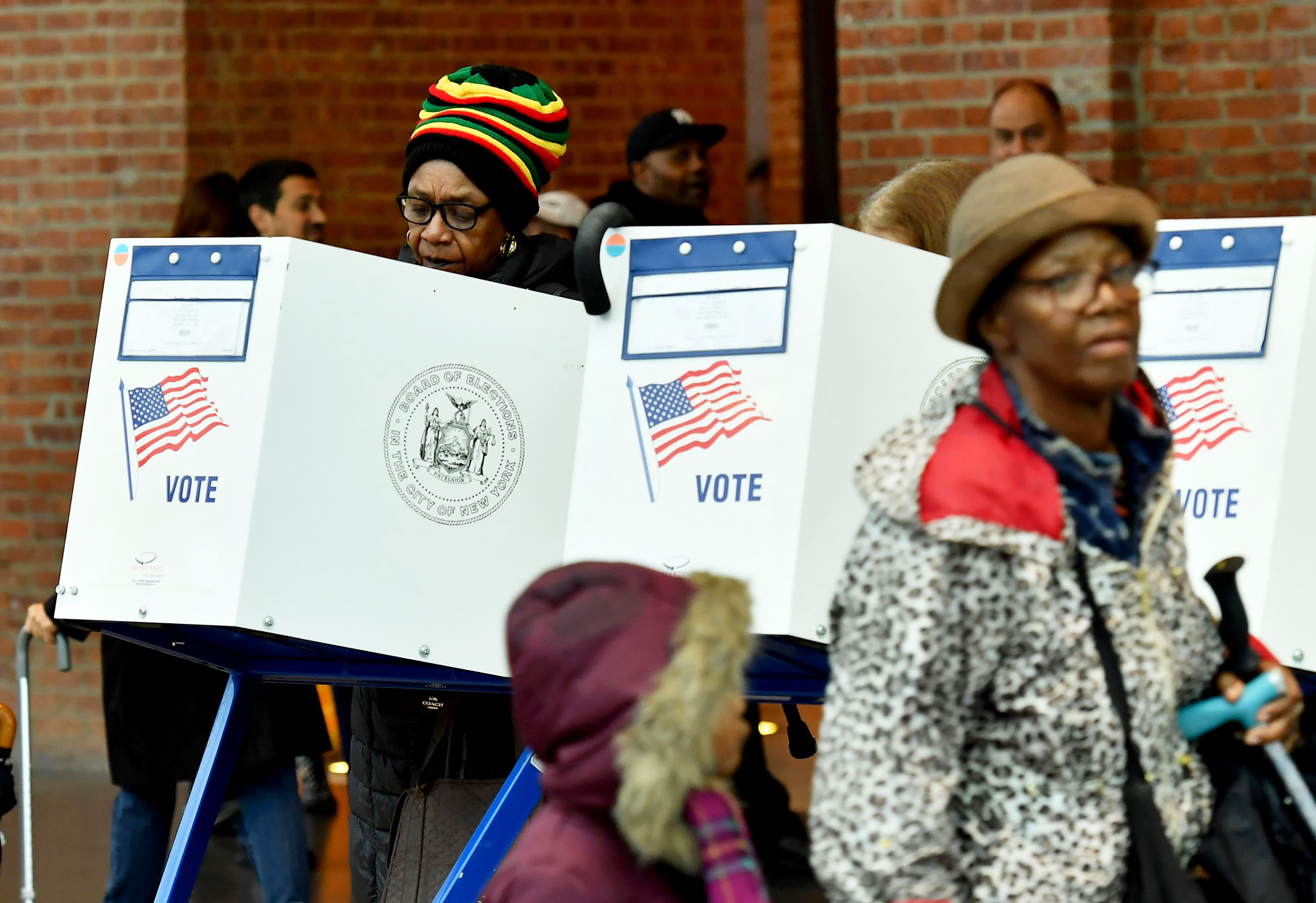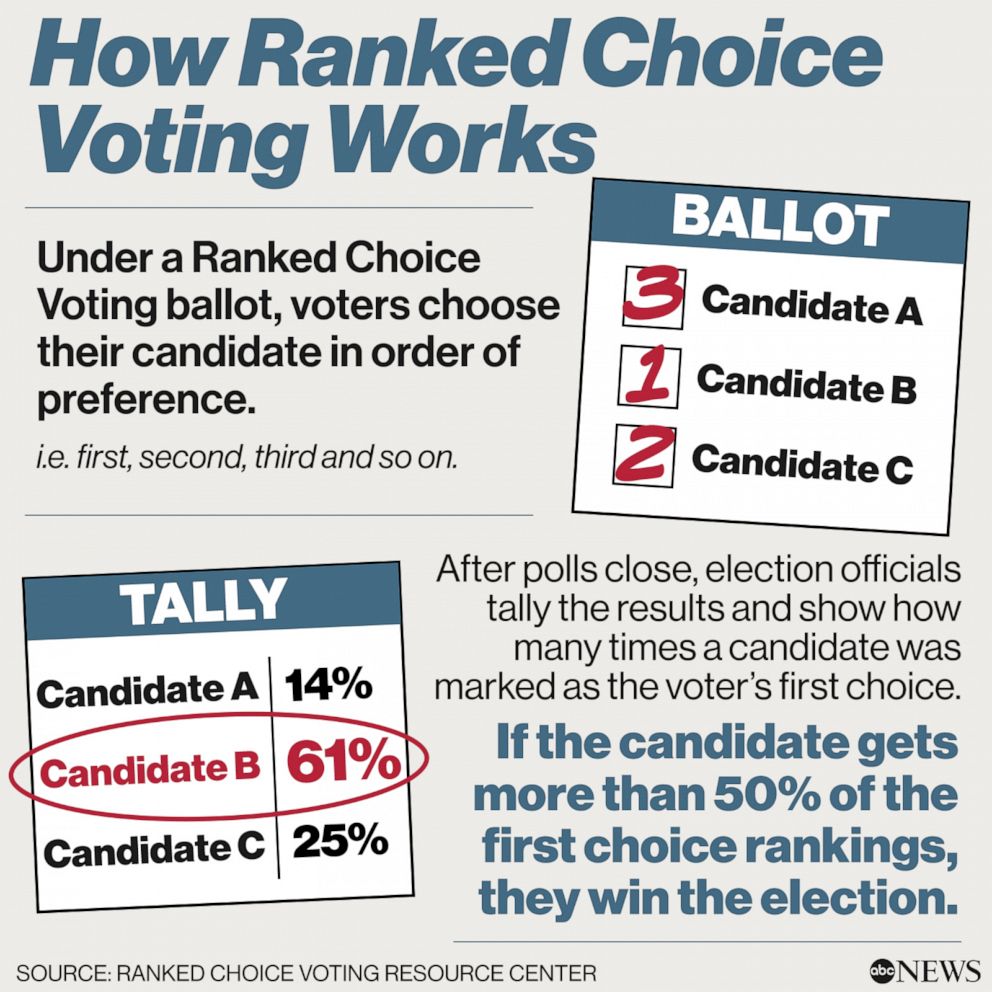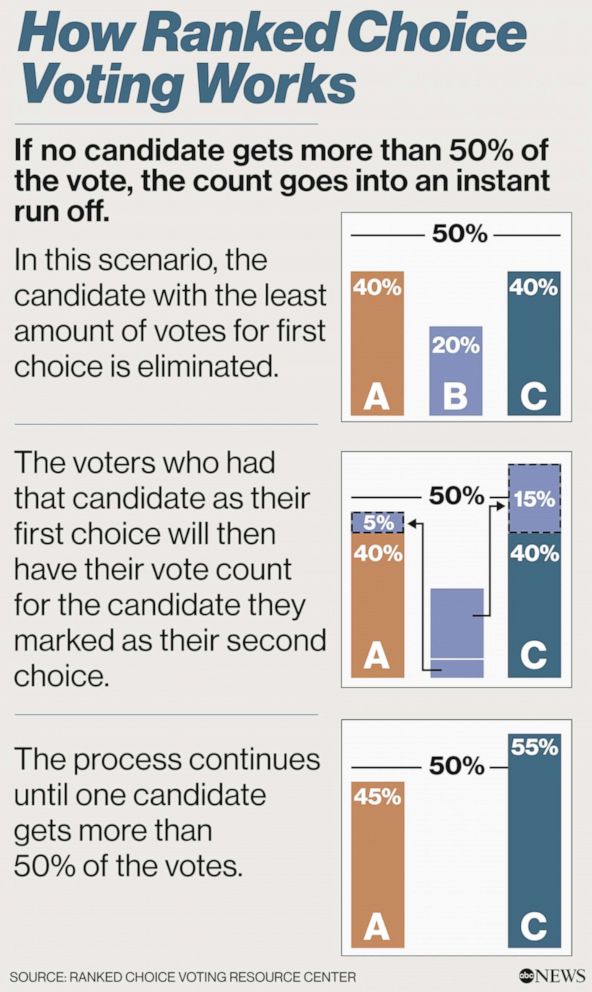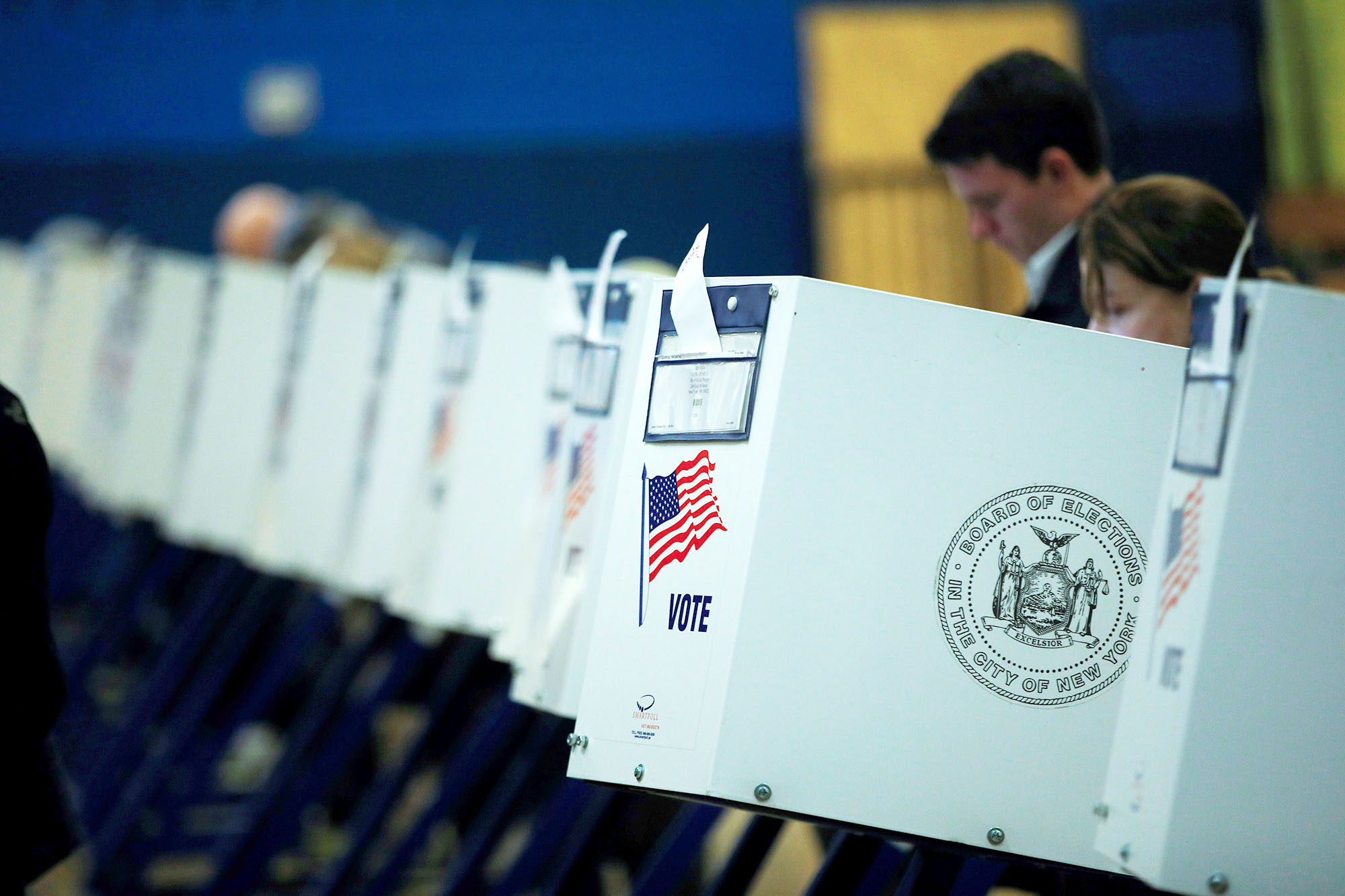New York City leaders sue to postpone ranked-choice voting system
The lawsuit claims the election board hasn't properly educated voters about it.
New York City is slated to become the largest city in the nation to use a ranked-choice voting system. However, a group of city council leaders and other organizations are arguing in court that it's not the right time for such a drastic change.
Six New York City Council members, who are part of the council's Black, Latino and Asian Caucus, and organizations representing a variety of voters from different backgrounds, filed a lawsuit against the city's Board of Elections on Tuesday that seeks to stop it from changing the city's voting system from a traditional plurality method to ranked-choice.
City voters overwhelmingly approved a ballot measure in 2019 that changes all citywide elections and primaries to the new method where voters are asked to list their candidates in order of preference and the victor is decided through a process of elimination based on those rankings.
A special election is scheduled for February to replace a vacant city council seat and would be the first race to use ranked-choice. The plaintiffs in the lawsuit contend the board's current plan to roll out the system is inadequate and hasn't done a good job educating the electorate on how it works, particularly among minority and immigrant communities.

"RCV requires voters to be informed and to be informed on a larger and much more in-depth scale," the plaintiffs wrote.
Under a ranked-choice voting ballot, voters rank their candidates based on their preferences. Voters can also choose only one candidate and leave the other rankings blank, if they wish.
If one candidate gets the majority of the first choice votes, that candidate is declared the winner.
If no one candidate gets a majority, the results will then head into what is known as an instant runoff.

Election officials will look at the ballots and eliminate the candidate who received the fewest number of first-choice rankings. The ballots that listed the eliminated candidate as the top choice are then re-examined for their second choice.
The candidates that were ranked second on those ballots are tallied, and those votes are transferred to the remaining candidates.
If there is a candidate with a majority after the transfer, that person is the winner. If not, the process continues to more rounds until there is a clear majority.

More than 3.3 million voters in the state of Maine as well as 17 cities across the nation, including Minneapolis and San Francisco, vote through ranked-choice voting, according to the nonprofit group Ranked Choice Voting Resource Center.
Roughly 73% of New York City voters approved the ballot measure in 2019 to change to ranked-choice voting for local races starting in 2021. However, only 17.2% of registered voters turned out to vote during that year, according to a report issued by New York City's Campaign Finance Board.
With 6.5 million people over 18, according to the NYC Board of Elections, New York City will be the largest electorate to use the voting system.
The lawsuit's plaintiffs, which include three council members up for re-election next year, argue that the board has done a poor job in the past to provide translators at poll sites and increase education among voters who don't speak English as their primary language.
It also contends that the board hasn't finalized its plan on a ranked-choice voting system despite city charter deadlines and calls from the state Board of Elections.

"No voting system has been approved by the State Board [of Elections] and therefore there is no voting system that can lawfully be used at the February 21, 2020, Special Election," the plaintiffs said in the lawsuit.
The suit asks the court to declare any use of ranked-choice voting in the February election as a violation of the city charter. It also asks the court to prevent the Board of Elections from using the method in next year's races until it comes up with a better rollout plan.
A spokeswoman for the New York City Board of Elections told ABC News the office cannot comment on pending litigation.




